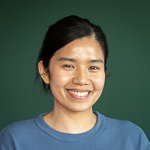Clinician Perspectives on Levels of Evidence and Oversight for Deep Brain Stimulation for Treatment-Resistant Childhood OCD

Approximately 10-20% of children with obsessive-compulsive disorder (OCD) have treatment-resistant presentations, and there is likely interest in developing interventions for this patient group, which may include deep brain stimulation (DBS). The World Society for Stereotactic and Functional Neurosurgery has argued that at least two successful randomized controlled trials should be available before DBS treatment for a psychiatric disorder is considered “established.” The FDA approved DBS for adults with treatment-resistant OCD under a humanitarian device exemption (HDE) in 2009, which requires that a device be used to manage or treat a condition impacting 8,000 or fewer patients annually in the United States. DBS is currently offered to children ages 7 and older with treatment-resistant dystonia under an HDE. Ethical and empirical work are needed to evaluate whether and under what conditions it might be appropriate to offer DBS for treatment-resistant childhood OCD. To address this gap, this seminar reports qualitative data from semi-structured interviews with 25 clinicians with expertise in this area. First, we report clinician perspectives on acceptable levels of evidence to offer DBS in this patient population. Second, we describe their perspectives on institutional policies or protocols that might be needed to effectively provide care for this patient population.
- Michelle T. Pham, PhD
- Assistant Professor
- Center for Bioethics and Social Justice, Department of Medicine, College of Human Medicine
- Recorded November 15, 2023
To turn on closed captions for this video, click the CC icon in the video player and select English.
